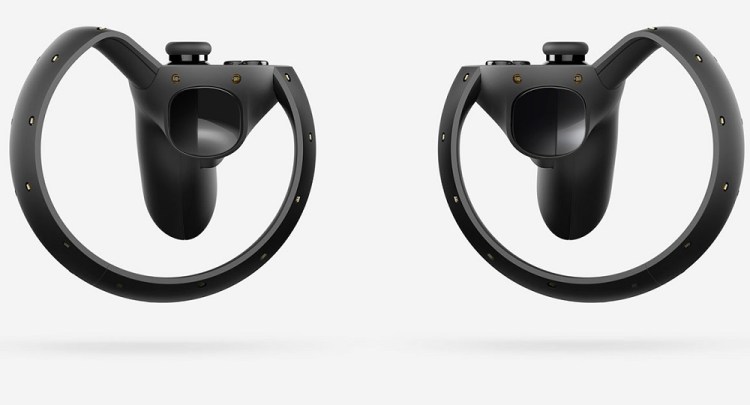GamesBeat: I want to take this back in a certain direction here. For investments, what still has to be invented, from your point of view? What would be worth some of these people looking into and putting their money into? What are the unsolved problems, the things that have to get done?
Davis: What’s obvious is that there’s no market yet. People don’t own these devices. We don’t know what the killer apps are. There are no defined business models. What does it mean to sell a VR app? Is it a free-to-play type thing? Do you pay as you go?
GamesBeat: We have them in a market, but we’ve shown up only with headsets. We’re still missing a lot of stuff, like 3D audio or wireless headsets. What do you do with your hands and legs?
Beall: From my perspective, working in the enterprise world, it’s content. Getting content into the system. The fidelity of displays and the compute power have reached a point where there’s a lot of viable applications, but getting real content — either through reality capture, where there are some very interesting applications happening, or getting digital assets — we deal with no customer anymore who isn’t already invested heavily in their IP as a digital asset, whether it’s a construction firm, manufacturing, or even training. Yet there’s very little workflow to convert that into realtime graphics. There’s a huge investment to be made there.
The management of those resources for streaming is another area that’s just on the brink. Speaking to the subject of human motion capture, we’re still fairly crude when it comes to being able to fully capture my body and my hand motions. The more we do there, the more fluid that becomes, the more comprehensive this technology becomes as far as allowing us to function.
Azuma: There are much deeper issues in terms of trying to perfect these experiences. We’ve said that presence that’s palpable is the thing that differentiates the medium. A lot of people are trying to do 360 camera views for VR. That’s a step. That’s sort of like the early days of TV, when people recorded plays. It wasn’t taking advantage of what the medium of TV could do that was different. It was using a traditional stage and things like that. What’s the answer to that with VR? That’s the question that the field needs to struggle with.
GamesBeat: For AR you have to get all this data from the cloud into your glasses. How is that going to happen?
Eisenhardt: We have killer apps. I think we have killer apps for the verticals that we’ve targeted. The real hurdle, I think, is getting people to actually wear these things. Getting your hardware to a stage where it’s completely seamless — that involves tight collaboration with the fashion industry moving forward. We’ve been doing that for years. That needs to continually accelerate. And the tech life cycle versus the fashion life cycle — they couldn’t be more different, on all tiers. That’s a challenge. But the form factor, the industrial design, all that stuff — if you can’t solve that and make these things look great, people won’t wear them.
90 percent of people who go skiing wear goggles already, so we can go in and work with them. That’s why we started there. But if you’re talking about walking around, inside or outside, right now, it’s a sacrifice for us. We’re forced to change our behavior. That’s what I’m talking about now. At what point do people say, “Okay, I’m in”? Once they buy in and put on these glasses, they’ll realize it. “I have all this information that I didn’t have before.”
Davis: You guys were absolutely smart to start with the snow goggles, because there’s already a crazy form factor that allows you to do some cool stuff. We’ve seen revolutionary technologies in our lifetimes, right? The internet, the smartphone. We already spend more time with our smartphones than we do with our significant others these days. Why is that? It’s because the value of this device, of the internet and media and all these other things, is so significant. We need to overcome the same barrier, the same hurdle, with AR and VR.
GamesBeat: These are all very intimidating things. But what’s interesting to me is the speed at which things are improving and how fast we’re learning. I’ve watched the Epic VR demos over a few years now, and they’re getting better and better. The last one you put together was 12 people, right? Maybe the next one will take 30 people working for a year. But eventually you’re going to learn so much doing that, you’ll either have an advantage on everyone else when the market arrives. That’s the theory, right?
Davis: Obviously getting involved early with the opportunity is advantageous. Personally, what I look at is — VR, for someone like myself, is easy. I love new frontiers. I want to believe. But what does it take for my parents or my friends that aren’t in the tech space to want to go buy this device? What does that involve? I haven’t seen that, personally. I would love to hear that idea. We can talk about wires and batteries, but it’s really that experience, that content, that we’re missing so far.
Azuma: We need the Eisensteins and the Buster Keatons, which we haven’t had yet.
GamesBeat: Investors are looking at this and saying, “Okay, we have to cycle through a lot of experiments and failures and things that aren’t going to work for years? We’re going to fund these things in the hope that this will all come together?”
Davis: As a software developer, I say you should invest in software developers. But seriously, to go back to an earlier statement, this year is the most pivotal. Hardware has been really hard to get your hands on. So many people out there have fantastic, creative ideas — people from the games industry, the film industry, all kinds of interesting verticals — and they’re converging on VR. Those are the people you want to bet on.
Who knows what the experience is going to be? I’d feel pretty arrogant saying, “It’s going to be social communication gaming!” or whatever. Nobody knows yet.
Beall: We’re seeing huge uptake in Los Angeles, in digital Hollywood. Movie studios are seeing this as a major play. I was there a couple of weeks ago and there’s a whole different vibe, a whole different conversation down there. Huge investments are going on. That’s going to lead to all sorts of investment opportunities in content distribution.
As an aside, talking about augmented reality, I don’t know if you consider this Apple Watch an augmented reality device, but it has haptics. That’s the most ground-breaking thing there. Something that’s an area for investment is other modalities. We think of VR as being visual reality, but it’s really virtual reality, across any modality. That’s the challenge. Traditionally, the senses other than vision have been much more difficult to attack. Augmentation through acoustics, augmentation through haptic devices, that is all ripe, ripe territory for all sorts of development.
Eisenhardt: For investors to flock to the space there needs to be the feeling that this is really going to happen. This is going to blow up in the next five years. If you’re looking at something more like 10 years plus, they may as well be sitting on the sidelines. But we’re already seeing investments happen, in both AR and VR. A number of companies are just on the cusp of coming out. In the next two to three years, I think, we’ll see AR start to take off.
Audience question: Will games or porn take off?
Davis: Let me answer a different question. There’s a trap in VR and AR as well, which is the tendency to think about one specific set of applications. It’s not that. It’s not about games. It’s not about any of these things. It is about the future of computing. When we extrapolate and solve all these hardware problems, when we have screens embedded in our eyes or wherever the hell we want them, I don’t need computers or mobile phones or watches anymore. It’s a danger to look at this as a binary situation.
Azuma: It reminds me that once VR gets better than dating, then the human race will become extinct. I used to get his question when I was a grad student all of the time. I’m working on all of these important applications and that is the first question you ask me? The real answer? Tell me a form of communication or medium that hasn’t involved that. It’s different forms of media that will cover everything. We won’t have just one particular genre like VR horror.
GamesBeat: OK, Intel endorses porn. You guys heard it here.
VentureBeat's mission is to be a digital town square for technical decision-makers to gain knowledge about transformative enterprise technology and transact. Learn More




